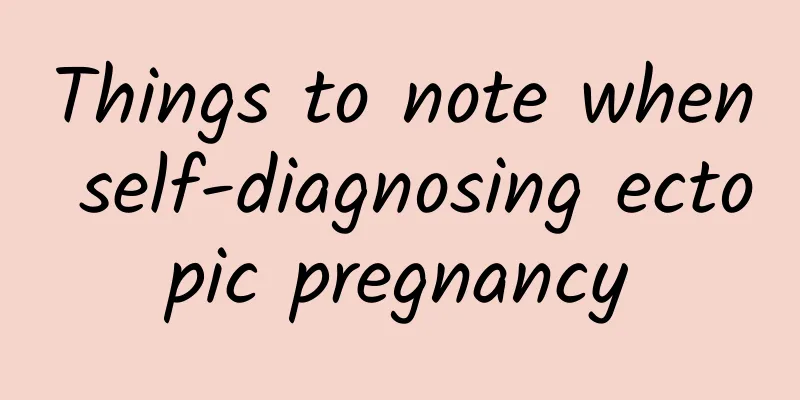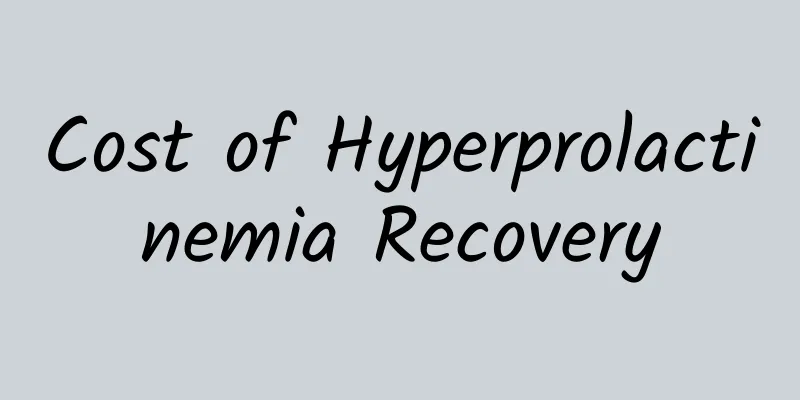What are the reactions of women taking abortion drugs? Women taking abortion drugs will have these reactions

|
Medical abortion is the most common method of abortion and also the simplest method. However, it is very harmful to women's bodies. Women need to pay attention to their body's recovery after the abortion and take more rest after the abortion. After taking the abortion pills, women will experience nausea, vomiting and vaginal bleeding. In addition, a uterine curettage is required two weeks after the abortion. The uterine curettage can prevent women from becoming infertile. What are the reactions to taking abortion pills? After taking abortion pills, there will be gastrointestinal reactions, manifested as nausea, vomiting, diarrhea, and lower abdominal pain due to uterine contractions. Some people have fever, dizziness, skin flushing and numbness. In addition, about 10% of women will have failed or incomplete abortions after taking medication for abortion, so curettage is necessary. In addition, although the chorionic foetal sac has been expelled during medical abortion, the decidual tissue in the uterus is slowly expelled, so the bleeding time is longer, an average of 18 to 20 days. Some women will suffer from anemia or complications such as endometritis and pelvic inflammatory disease due to excessive and prolonged bleeding. The harms of abortion Ectopic pregnancy Abortion can lead to scarring and stenosis of the fallopian tubes. When the fertilized egg moves toward the uterus, it will be blocked and stop in these areas, causing tubal pregnancy (also the most common type of ectopic pregnancy), and finally causing fallopian tube rupture or massive intra-abdominal bleeding, which can be life-threatening in severe cases. Fallopian tube inflammation If the patient suffers from cervicitis or the operation is not properly disinfected, bacteria will be brought into the uterine cavity, which will cause salpingitis and block the fallopian tubes, leading to infertility. If the patient is weak after the operation and infected with pathogenic bacteria within two weeks, endometritis and pelvic inflammatory disease are likely to occur. If the acute stage is not treated promptly and thoroughly, it can turn into chronic inflammation and can also lead to infertility. Breast Disease Once a woman becomes pregnant, subtle changes will occur in various systems in her body, and breast cells will begin to develop. If pregnancy is suddenly interrupted, the breast cells that have just begun to develop will atrophy. If timely care is not provided, the breasts will not fully recover, which will cause breast diseases. Cervical and uterine adhesions The most direct harm of artificial abortion surgery is to the female birth canal. Improper surgery can cause cervical adhesion blockage or uterine cavity adhesion shrinkage, resulting in postoperative amenorrhea or a significant decrease in menstrual volume, sometimes accompanied by periodic lower abdominal pain or uterine enlargement and blood accumulation. |
<<: What are the causes of cervicitis in women?
Recommend
A new option to lose calories: walking on the hot spring trail is effective
Don’t want to sweat it out in a gym surrounded by...
Powerful fight against obesity! 3 exercises a day, lose 18kg quickly after giving birth
There are many pregnant mothers who gain nearly 2...
Rational use of drugs for hyperprolactinemia
What is hyperprolactinemia? Prolactin is a polype...
How to determine whether you have irregular menstruation
In real life, irregular menstruation is a very co...
What are the symptoms of uterine fibroids?
People have different opinions about uterine fibr...
Is recurrent spontaneous abortion easy to treat? How to treat recurrent spontaneous abortion?
The causes of recurrent miscarriage include femal...
There are several main treatments for multiple uterine fibroids:
Multiple uterine fibroids are a type of uterine f...
To lose weight, you need to eat more starch. Resistant starch does not make you fat.
Who said "You can't eat starch when losi...
Experts introduce the examination items for cervical hypertrophy
Women need to be well aware of the examination it...
Do you know the signs of ectopic pregnancy?
What are the signs of ectopic pregnancy? Ectopic ...
Symptoms of cervicitis erosion
Cervicitis is a common disease in women of childb...
Tips for pelvic inflammatory disease care
The care of pelvic inflammatory disease is an ext...
Breast pain 14 days before menstruation
Breast pain 14 days before menstruation Breast pa...
Experts briefly describe the treatment of vulvar leukoplakia
Vulvar leukoplakia is now a very common gynecolog...
What should I do if abnormal leucorrhea occurs repeatedly?
What should I do if abnormal leucorrhea occurs re...









